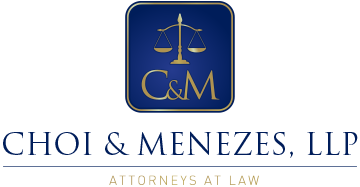On December 17, 1996, the IRS and the Treasury Department issued Regulation 7701, which replaced the old « four factors », for classifying entities considered as companies for federal tax purposes. This new regulation is known as the « check the box « (CTB). Under this new regulation CTB, the method to determine if an entity will be classified as a corporation or a non-corporation is clear. The non corporate entities, avoid corporate taxation and are considered « flow through ». To wit, the income of the entity passes directly to the shareholders or owners and the dividends go to them and not to the entity.
With respect to federal taxes, the regulation establishes that the federal tax law is predominant over the state law to define whether an entity can be ignored as a corporation. In this manner, the state law of creation can continue to protect the shareholder from liability to third parties through corporate laws of limited liability but at the same time has the benefit of the « flow through » for federal taxation.
The regulations permit certain entities to make an election to be considered « flow through » entities or non existant. In this manner, entities which in the past would have been considered as corporations, can elect to be ignored for tax purposes and others which were not considered as distinct from their owners, may elect to be considered as corporations for tax purposes.
The regulations address a series of entities which by default or by process of elimination are considered « flow-throughs » without the necessity of a formal election. For the domestic enetities such as the Delaware and Florida Limited Liability Companies (LLC), which only have one shareholder or owner, the classification « by default », is to ignore them as an entitity.
The effect of CTB on a Delaware LLC having only one owner and which is not « doing business » in the United States, is that they can be created to function outside the United States and are capable of realizing, without any tax consequence in the United States, among other activities the following : (i) possess shares in foreign companies, (ii) bank accounts outside the United States, and, (iii) own assets, among others, real estate outside of the United States. In essence, these companies have the same benefits as an « offshore » company without having the disadvantage of being created in a jurisdiction known as a « fiscal paradise ». Although many states in the United States have limited liability company statutes, some states, including Florida, have other taxes such as intangible or even state income or sales taxes which might affect an LLC. Accordingly, Delaware is generally preferred for LLC incorporation.
The question frequently arises as to what is « doing business » in the United States and there is no exact answer, rather it is an accumulation of contacts. Having a United States corporate director would not alone constitute « doing business » but having an office or buying or selling merchandise in the United State would. Clearly the best policy would be to have minimal United States contacts and even these might create inconveniences. For example, if a bank account is opened in the United States, then a United States federal identification number will be required. This, in turn, will engender requests from the United States’ government for a tax return. Since there is no Delaware or federal requirement that a Delaware LLC have a federal identification number, unnecessary work can be saved by not having a United States bank account.
Finally, if the stockholder of the Delaware or Florida LLC is an individual, estate taxes will be due upon his/her death and these will be based on the value of the LLC ‘s shares which would reflect the net asset value. To avoid this tax usually an LLC is owned by an offshore company.

